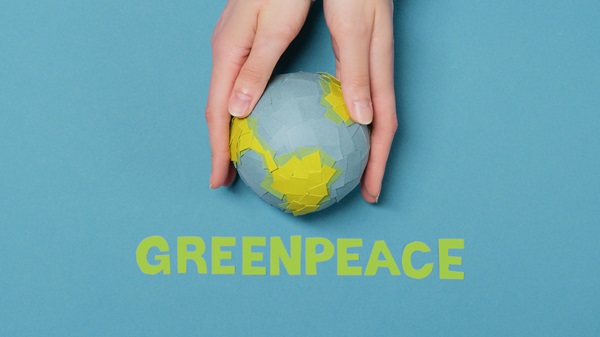
On Monday 19 February 2024, Greenpeace Luxembourg announced that Luxembourg once again emerged as the first EU country to reach its Earth Overshoot Day on Tuesday 20 February 2024.
Earth Overshoot Day marks the date when humanity's demand for ecological resources and services in a given year exceeds what Earth can regenerate in that year.
To celebrate the title of European champion, Greenpeace Luxembourg paraded through the streets of the capital with a red lion and shared with those present this bitter realisation that the Luxembourg population consumes in a few weeks the number of resources that all of the earth's ecosystems can renew in a year.
Luxembourg has one of the largest ecological footprints in the world. If everyone lived like the inhabitants of the Grand Duchy, we would need more than seven planets to satisfy our hunger for consumption. Road traffic, meat-rich diets and energy consumption are, among other things, partly responsible for the depletion of natural resources and global warming. Although emissions are on a decreasing trend, efforts are not enough to significantly reduce the need for raw materials. The root of the issue is our dependence on fossil fuels and the eternal race for growth, Greenpeace stressed.
"Really crucial decisions, such as the introduction of environmentally friendly taxation, are not easy to make in the context of violent conflicts with the most disadvantaged population groups. Due to various crises, difficult but necessary decisions for a more sustainable orientation of our consumption and our production conditions are becoming more and more difficult. But the climate emergency leaves us no choice, it requires us to obtain the necessary resources to support the entire society," explained Frédéric Meys, campaign director at Greenpeace Luxembourg.
Luxembourg has never had as much wealth as today. Companies located in areas that are particularly harmful to the environment do not receive enough incentives to reduce their ecological footprint, nor are they prosecuted for the damage they cause, the association stressed. Greenpeace also emphasised that, due to an economic system that prioritises short-term profits, little attention is paid to the impact of current decisions on the environment, leaving the problems caused in the present for future generations to solve.
“Time is running out and the relaxation of nature protection measures risks multiplying negative headlines on the climate and biodiversity front, or even leading to a complete collapse,” warned Frédéric Meys. Greenpeace therefore called on the government not to reduce the measures taken previously and to accelerate the energy transition in Luxembourg through various measures, such as increasing CO2 taxation.








